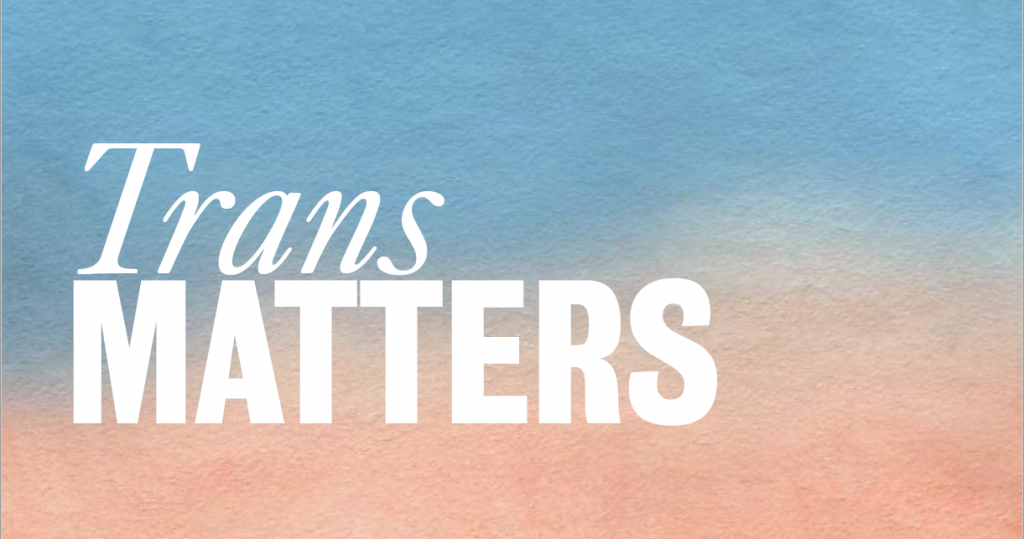As part of Trans Awareness Weeks and the Trans Day of Remembrance which both take place in November, King’s launched it’s Trans Matters guidance documents to provide support to trans and non-binary members of the King’s campus community, as well advice and guidance to those staff supporting these individuals. The launch included key staff and students who worked on the documents, Riley B and Dr Elliot Evans, as well as prominent trans activist, Jacqui Gavin.
King’s has recently become a member of Stonewall and Pete Mercer, the Head of Public Sector Memberships kindly agreed to feature as a guest blogger for our November post on the importance of trans support and allyship for our November post.
Under UK law, public and private sector bodies alike are required to observe and protect the rights of trans people. Following extensive consultation (rightly), KCL’s new ‘Trans Matters’ policy and guidance is therefore a response to both their legal and moral obligations to support their trans staff and students. As with all policies though, this document has the most impact when it’s put to use! – so it’s imperative that everyone takes time to consider its content and its significance.
While organisations are rightly taking action to meet their responsibilities, it’s important to also point out that the existing legislation (the Gender Recognition Act 2004) that allows trans people to legally change their gender is deemed by many to be deeply inadequate and obstructive. As things stand, trans people are forced to endure a highly medicalised, bureaucratic and demeaning process. It’s also designed in the image of a strictly binary conception of gender, leaving non-binary individuals without any legal recognition of their gender identity.
Globally speaking, the vast majority of countries in the world only permit people to legally change their gender if they have undergone sterilisation, including in 20 European states. More broadly, persecution of and discrimination against trans people in everyday life is commonplace across many cultures and societies.
In some parts of the world, in Latin America particularly, the threat is devastatingly acute. This Monday (the 20th Nov) was Transgender Day of Remembrance, a day that commemorates the many lives of trans people across the globe that have been lost to hateful acts of murder. This year alone, that figure stands at over 270 – this doesn’t include those that didn’t attract any media coverage, so the real figure is likely to be much higher.
The UK, of course, is also certainly not free from transphobia by any stretch of the imagination. According to our brand-new research ‘LGBT in Britain’, two in five trans people have experiences a hate crime or incident because of their gender identity in the last 12 months. And while there’s danger in steeping awareness of the trans community exclusively in victimhood, at the same time it’s also important to recognise where the rights of trans people are under attack so that we can work to prevent it.
If, like most people, you pay attention to the news, you’d be hard pressed to not notice the intense media obsession on trans identities right now. It’s every day. This relentless media onslaught is perpetuating harmful transphobic slurs, myths and outright lies about trans people and their needs. It’s taking its toll on the collective mental health of the trans community, within which many already face every-day prejudice, and further invalidating their identities and esteem.
This is why it’s important right now for you to come out as a trans ally. The task of beating transphobia must not just be left on the shoulders of trans people themselves exclusively. So whether it’s on social media or in your local community, we need as many voices as possible to come out in support of truth, dignity and basic human rights: for trans people to live their lives freely and be accepted without exception.
Pete Mercer
Head of Public Sector Memberships, Stonewall
